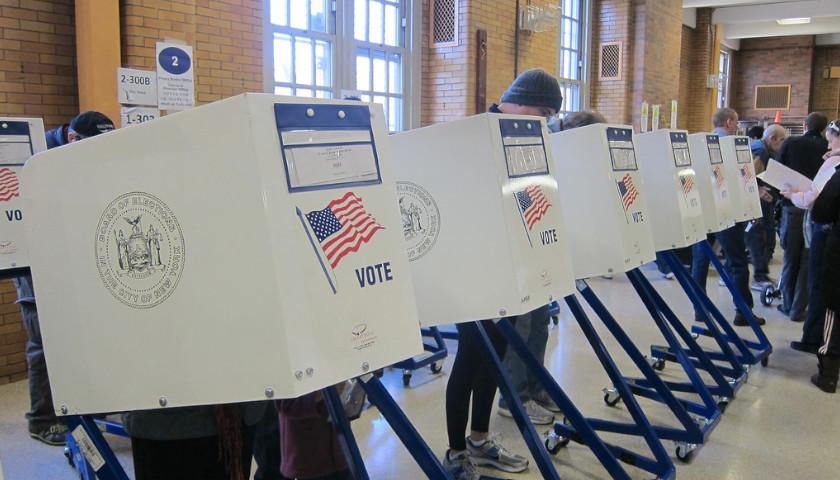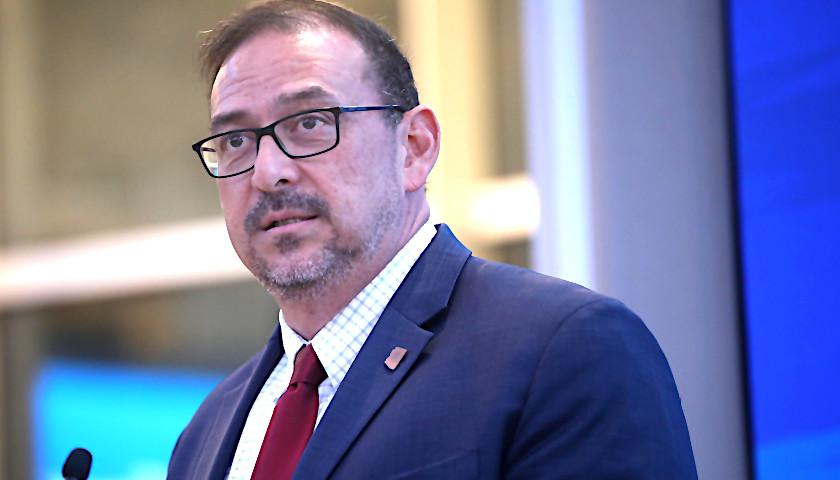by Madeline Armstrong
An open primary proposition will be on the ballot in November, but whether or not voters can actually put the measure into law remains to be seen.
Proposition 140, also known as the Make Elections Fair Act, would require that primary elections no longer be partisan. Candidates of any affiliation would all be competing in a general election and voters can vote on any candidate regardless of either’s affiliation.
“We believe that all voters and all candidates should be treated equally and this current system doesn’t do that because we have partisan primaries,” said Chuck Coughlin, CEO and president of Highground Public Affairs, a lobbyist group backing the measure. “The problem with today’s system is 80% of all legislative or congressional candidates get elected in primaries where less than 30% of the electorate participates.”
Prop. 140 received a spot on the ballot after the Secretary of State verified that there were enough verified signatures to secure that spot. However, this does not guarantee that voters are able to vote it into law due to ongoing litigation between Make Elections Fair PAC and numerous individuals including Democratic lawyers Roy Herrera and Daniel Arellano and the Arizona Free Enterprise Club.
The plaintiffs are arguing that almost 40,000 of the signatures verified by the Secretary of State were duplicated. If enough of the signatures are indeed disqualified, the ballot measure would be void.
“All the duplicates submitted to be removed were the same name and same address that aligned with what was on the voter file,” reads an Aug. 29 Arizona Free Enterprise Club news release. “Under state law, you are only allowed to sign a petition once, so they should have been removed. Instead, thousands of people were allowed to sign the initiative petition sheets multiple times, and those signatures were counted.”
The Arizona Free Enterprise Club has made screenshots of duplicate signatures publicly available, but it can not be verified if the pictures are of the signatures verified by the Secretary of State
The case was initially taken up in trial court where the judge ruled that it was not possible any evidence provided by the plaintiffs would meet the necessary legal burden to remove the measure from the ballot.
After an expedited appeal filed Aug. 21, the Arizona Supreme Court remanded the Maricopa County Superior Court to look at the evidence provided by the plaintiffs.
“Late in the day on August 22, Plaintiffs filed a special action proceeding here asking for a ruling before the end of the day on August 22 ‘finding as a matter of law that the Committee lacks a sufficient number of signatures’ and striking the measure from the ballot,” reads an Aug. 23 decision from the Arizona Supreme Court. “Plaintiffs contend that the trial court abused its discretion when it denied their request to rule on August 22 before the earliest county deadline to finalize the ballot for printing.”
The order stated that the Supreme Court was not able to make that determination as they had not seen the evidence, but would require the litigation to continue in trial court although the deadline for printing ballots had already passed.
Following this, the Make Elections Fair Pac filed a motion of reconsideration, stating that this order would overthrow “eight decades of precedent that petition challenges must end before ballot printing begins.”
The Supreme Court stated that there is no statutory requirement to resolve any ballot initiative litigation before the printing of ballots.
“Regardless, this Court, and indeed the trial court, has consistently endeavored to resolve initiative challenges before the ballot printing deadline, notwithstanding the burden such expedited proceedings place on the parties, attorneys, and court personnel,” reads the order. “We also recognize the desire for certainty. But the courts’ role is to dispense justice. Courts cannot be forced to rule rashly to meet a ballot printing deadline or provide the parties with certainty.”
Coughlin believes this order sets a bad precedent, empowering litigation. He said this could cause people to challenge measures and prolong litigation all the way up until election day, causing confusion for voters and compromising election integrity.
If the Superior Court determines that there are enough invalid signatures to disqualify the measure from being on the ballot, the court will issue an injunction precluding any votes for Prop. 140 from being counted. It has not been announced if voters will be informed of the preclusion when voting.
The next trial where the plaintiffs will submit their evidence will take place Tuesday, Sept. 3 at the Maricopa County Superior Court.
– – –
Madeline Armstrong is a contributor to The Center Square.
Photo “People Voting” by Joe Shlabotnik. CC BY-NC-SA 2.0.





